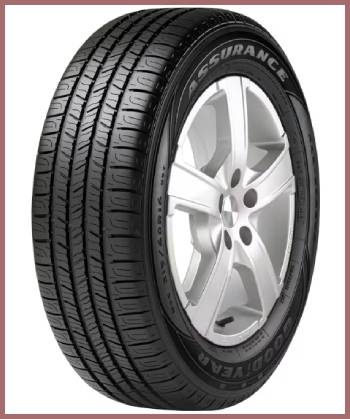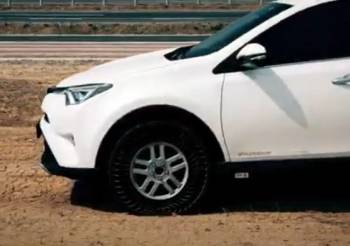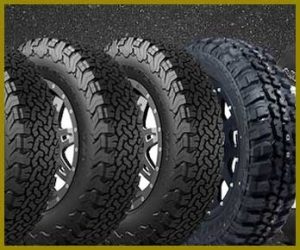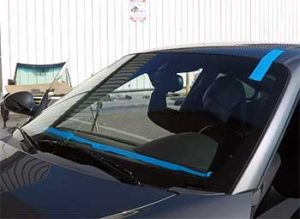If you’re in the market for a new set of tires, you’ve likely stumbled across the age-old debate: Goodyear vs Hankook. Two giants in the tire industry, each with their loyal customer base and unique selling points.
In this article, we’ll explore the ins and outs of these industry juggernauts, dissecting their pros and cons to help you make an informed decision.
A Brief Comparison Table
| Goodyear Tires | Hankook Tires | |
| All-Weather | Excellent | Good |
| Performance | Excellent | Good |
| Product Range | Broad | Varied |
| Price | Premium | Budget-Friendly |
| Tread Life | Good | Very Good |
| Price | High | Affordable |
| Winter Driving | Excellent | Average |
| Warranty Claim | Easy | Sometimes Cumbersome |
| Tread Life | Sometimes Less Than Advertised | As Advertised |
This table provides a quick and straightforward comparison of the two brands. As you can see, both have their strengths and areas for improvement. Choosing the right one ultimately depends on your specific needs and preferences.
Goodyear: The Veteran Challenger

Goodyear has been a staple in the American tire industry since 1898. As one of the world’s largest tire companies, Goodyear offers a wide variety of tires for different vehicles and driving conditions.
- Pros of Goodyear Tires
Goodyear’s strength lies in its extensive experience and a broad range of products. The company is known for its excellent all-weather tires, with superior handling and traction capabilities. Notably, the Assurance series is applauded for exceptional wet and dry traction, perfect for those unpredictable weather conditions.
Goodyear is also a pioneer in racing tires. Their Eagle series is well-liked for high-speed stability and responsiveness, a testament to their sporting pedigree.
- Cons of Goodyear Tires
On the flip side, some drivers feel that Goodyear tires tend to be on the pricier side. While they offer high-quality, durable products, they might not be the best choice for budget-conscious consumers.
Additionally, a few users report a shorter tread life than advertised. It’s worth noting that tread life can be influenced by many factors like driving style and maintenance, so your mileage may vary.
Also Read: Differences Between Michelin And General Gmax AS-05 Tires.
Hankook: The Energetic Contender

South Korea’s Hankook Tire has been gaining popularity globally since its inception in 1941. With a focus on innovation and value-for-money, they’re challenging the old guards in the tire industry.
- Pros of Hankook Tires
Hankook’s Ventus and Optimo series have received rave reviews for their performance in both dry and wet conditions. These tires provide a smooth and comfortable ride, with responsive handling and excellent stability.
In terms of affordability, Hankook delivers. They offer competitive prices without compromising on quality, making them a popular choice for drivers on a budget.
- Cons of Hankook Tires
While Hankook tires generally perform well in various conditions, some users have reported less-than-stellar performance in heavy snow and ice. If you’re living in areas with harsh winters, this is something to consider.
Additionally, although Hankook offers warranties on their tires, several users have mentioned that the process of claiming can be cumbersome and time-consuming.
Goodyear vs Hankook: The Verdict
Both Goodyear and Hankook have their strengths and weaknesses. Choosing between the two boils down to your specific needs and budget. If you’re seeking top-notch performance and don’t mind the higher price tag, Goodyear might be the right choice. However, if you’re after a blend of quality and value, Hankook could be your perfect match.
Frequently Asked Questions (FAQs)
Absolutely. Hankook offers high-quality tires at competitive prices. While they may not be the best in extreme weather conditions, they perform well in both dry and wet conditions, providing a comfortable and stable ride.
Yes, Goodyear is known for their excellent quality. They offer superior traction and handling capabilities. However, they tend to be pricier, and their tread life might be shorter than some competitors.
It depends on your needs. Michelin tires are known for their exceptional quality and performance, but they often come with a heftier price tag. Hankook, on the other hand, offers a great blend of quality and value. They might not outperform Michelin in every category, but they are a fantastic option for budget-conscious drivers.
Hankook offers a range of tires, from budget to premium. Their Ventus series, for example, is often compared to some of the top premium tires in terms of performance and ride comfort.
Goodyear tires generally offer a tread life warranty of 50,000 to 85,000 miles, depending on the tire model. However, the actual life of a tire can vary depending on factors like driving habits, road conditions, and tire maintenance.
Yes, Goodyear is considered a premium brand. They offer a wide range of high-quality tires that cater to different driving needs. They’re particularly known for their excellent all-weather tires and their racing tire series.
Also Read: Differences Between Firestone Transforce AT And HT Tires.
Wrapping Things Up
In the grand scheme of things, choosing between Goodyear and Hankook—or any other tire brand, for that matter—shouldn’t be a stressful ordeal. Armed with the right information and a clear understanding of your driving needs, you’re more than equipped to make an informed decision.
Whether you decide to go with the veteran Goodyear or the energetic Hankook, one thing is for sure: The road ahead is full of possibilities. Happy driving!




